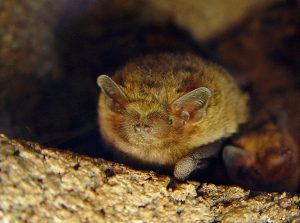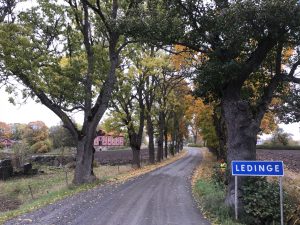
Swedish IENE i arranging a seminar about bats and infrastructure on November 27 2018 in Stockholm, Sweden. An additional workshop for bat specialists is also arranged the day after.
More information about the seminar and workshop is available below and in the separate invitation document.
The goals of the seminar:
- to present current knowledge about impacts from roads and railways on Swedish bats,
- to present useful decision tools to minimize and mitigate these impacts,
- to discuss when and where conservation action is needed and when not.
Focus is on the Swedish situation, but because the impacts and legislation is largely similar in all EU countries, we expect an international interest and we therefore give the seminar in English (with an opportunity to ask and discuss in Swedish).
Program
From the program, which is still in the making:
Invited speakers:
- Anna Berthinussen (Conservation First, UK)
- Johnny de Jong (Swedish Biodiversity Centre, SLU Sweden)
- Morten Elmeros (National Environmental Research Institute, Denmark)
- Manisha Bhardwaj (SLU Sweden and University of Melbourne, Australia)
The program will be open for further speakers and poster presentations. Part of the day will be dedicated to a discussion around questions such as:
- How has recent research helped assessing the impacts of roads and railways on bats?
- How effective are bat mitigation measures such as over- and underpasses?
- How can noice and light disturbance be mitigated?
- Can bat research provide any functional tool to guide decisions in new infrastructure and on retro-fitting of existing infrastructure?
- Can any proxy (”stand-in”) be used until better population data is gained?
- What risks we face with the lack of knowledge?
- What are the most urgent knowledge gaps that remain?
The seminar entails a cost for lunch and coffee of SEK 450:-.
Optional bat specialist meeting
Wednesday November 28, at Campus Ultuna, Uppsala
In connection to the seminar, we invite all bat specialists and other interested to continue the discussion in the day after.
There are many issues of importance for bat research and monitoring that cannot be covered in the first day. This meeting will be open for questions and presentations about new field methodology, analysis techniques, planning tools, research needs, international cooperation and knowledge exchange.
The contents of the meeting should be defined by the participants, and we propose to have prepared talks and questions in the morning and continue with a free discussion after lunch. We invite anyone that wants to make a presentation or bringing up a subject to let us know, so we can make a draft agenda.
This second day is optional and free of charge, but all pay their own lunch at the university restaurant. We end in time for everyone to make it home in the same day. No additional registration is required – we warmly welcome all seminar participants to “us” at the SLU!









